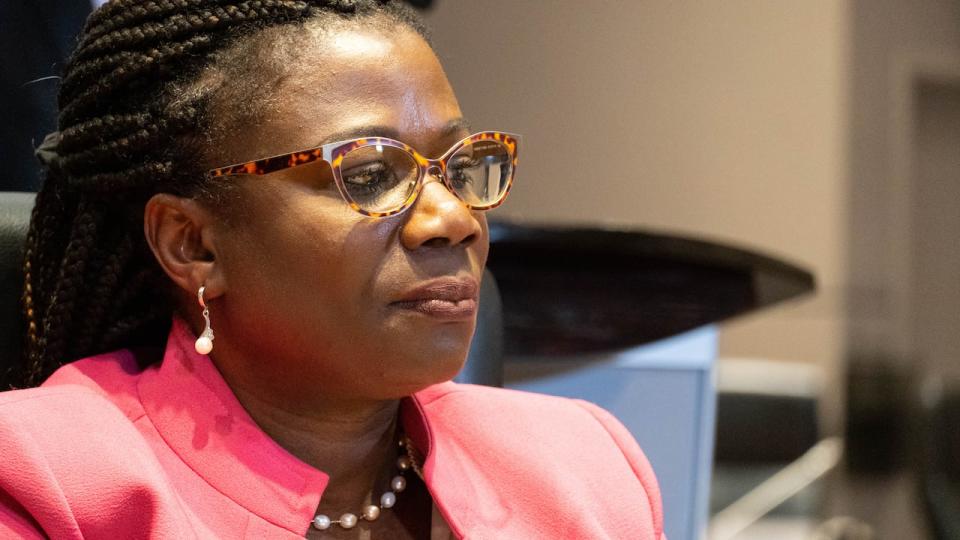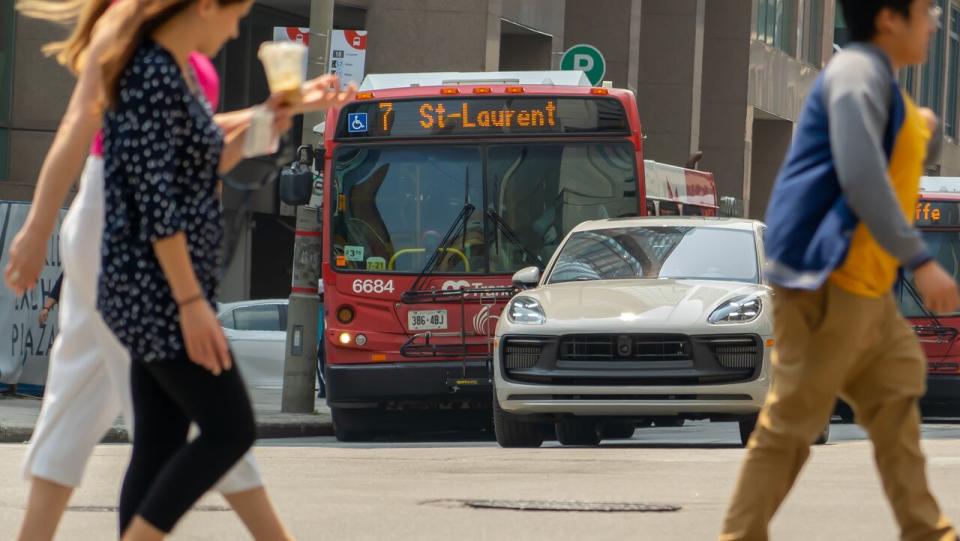Riders warn OC Transpo cuts will hurt most vulnerable

OC Transpo calls it "route optimization," but riders who spoke to the transit commission on Tuesday say it sounds more like giving up on getting the troubled service back to pre-pandemic levels.
The review is about "building a network that meetings customer needs," OC Transpo general manager Renée Amilcar told councillors on the commission.
"While there will be a small reduction in bus service hours per year, there will also be efficiencies gained by adjustment to rail service," she said.
Amilcar said the sweeping changes will mean a drop of 74,000 service hours per year, or 3.5 per cent of the total service. The most notable change is eliminating many 200-series Connexion routes.
This is not about "cost-cutting," she argued, while calling it "the responsible decision" for a steward of taxpayer dollars to make.
This overhaul is the biggest since a review in 2011 prompted thousands of customer complaints.

Amilcar, the City of Ottawa's general manager of transit, says the service changes are 'responsible.' (Jean Delisle/CBC)
Riders worry about 'death spiral'
Backlash was, once again, swift.
"We're cutting service and aiming to meet current service demands," said Sarah Donnelly, one of 17 members of the public who complained to the transit committee.
"You will be discouraging people to get back on transit, and also making it more difficult to adapt to needs when-slash-if ridership increases."
That could lead to a "death spiral," she argued.
The route changes will come into effect in the spring, when OC Transpo now hopes to relaunch the north-south Trillium LRT line. But many say they will no longer have a convenient way to get to transit hubs.
Affordability questioned
Many delegates noted that people who rely most on public transit, including low-income riders, have few other options.
Naomi Badour relies on the No. 82 bus to get to her university campus and her job in retail — neither of which allow her to travel during peak periods.
"How is this putting customers first?" she asked. "My reality is that I can't afford to buy a car. I can't afford a $400.00 parking pass for campus parking, can't pay gas or insurance or repairs ... especially if I have absolutely no way to get to and from my job."
Donnelly had similar concerns about changing the No. 11 bus, which is going to be stretched further.
"I stand at the corner of Somerset and Bank and wait for a bus that sometimes just doesn't show up," she said. "I'm standing there waiting and being concerned about having to pay a cancellation fee on my appointment."
Coun. Jeff Leiper also had concerns about how to ensure the longer route won't lead to delays.
"It goes through some of the nastiest, gnarliest traffic in the city," he said. "I'm not certain how without transit priority measures we're going to be able to maintain anything close to a schedule"

The route changes will mean a reduction of 74,000 hours of service per year. (Francis Ferland/CBC)
Some wiggle room still exists
Transit commissioners received the report on route changes, but don't have the power to approve or nix any shifts.
The route review began at the start of the year, with well over 8,000 people completing an online survey. But those responses were not based on any proposed changes.
Transit planning director Pat Scrimgeour told councillors there isn't much time to make changes, because a lot of planning needs to happen between now and launch.
"If we bring very huge changes, that will change the [budget] envelope," said Amilcar, who said any further change can have unexpected changes on the system.
That was concerning to Coun. Riley Brockington, who was only able to begin discussions with residents this month.
"This is critical," he said. "I would rather we take the time to implement this well, than go through a process the public thinks is just smoke."
There was good news for some residents, however.
Some of the proposed changes have been adjusted since they were announced earlier this month. One change, to roll back the service cuts on the 82 bus outside peak hours, means Badour can breathe a sigh of relief.
Others remain out of luck.


